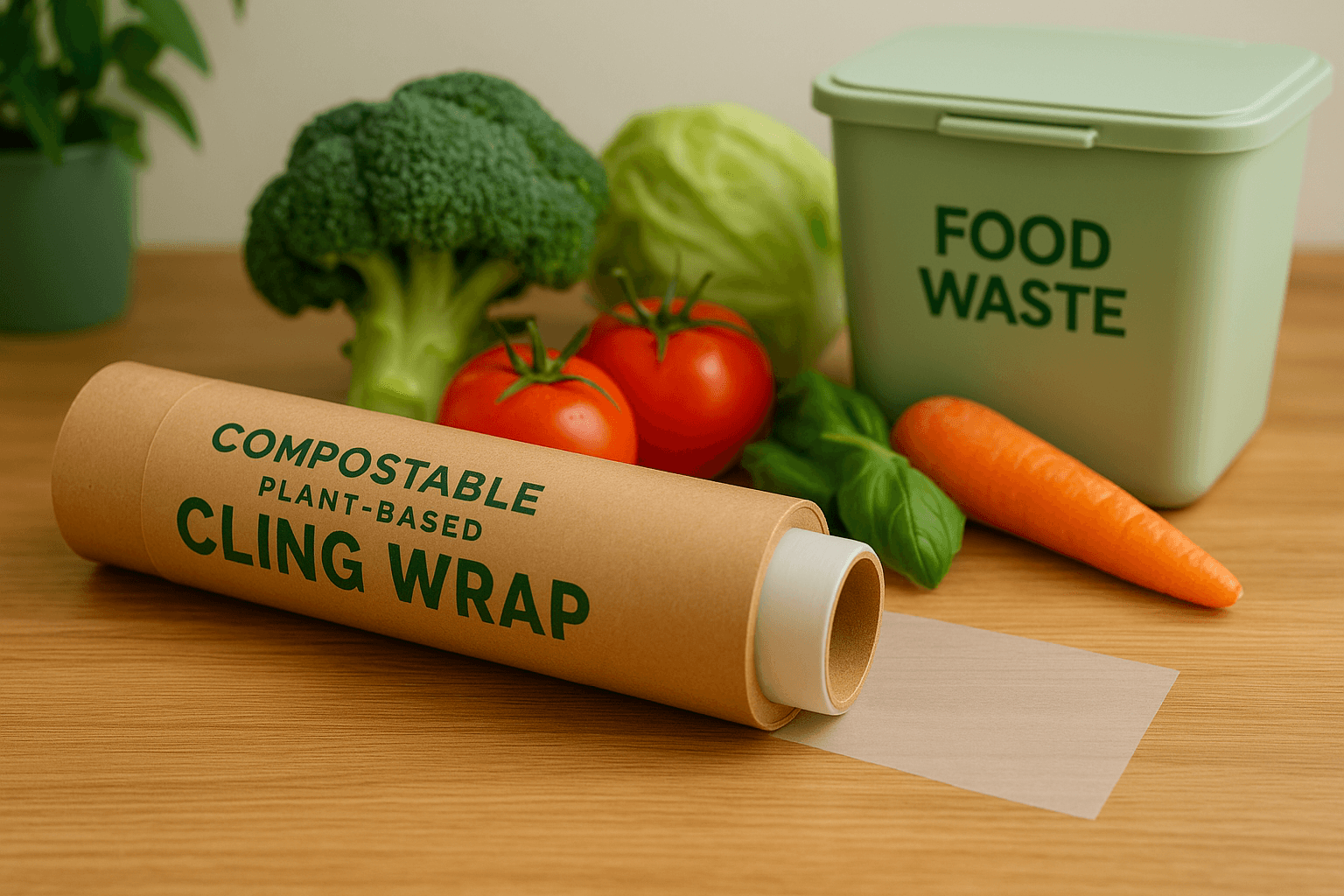Kitchen wraps play a surprisingly big role in everyday food storage. In the UK, where awareness around sustainability and reducing single-use plastics is growing, consumers are turning to eco-friendly alternatives that keep food fresh without harming the environment. From cling film to beeswax wraps, the market now offers a wide range of choices that balance convenience, cost, and eco-conscious living.
Why Kitchen Wraps Matter in the UK
Food waste costs UK households billions every year, and improper storage is one of the main culprits. Kitchen wraps help extend the freshness of fruit, vegetables, bread, and leftovers. Traditionally, cling film and foil have been the go-to solutions, but concerns about single-use plastics and landfill waste are driving demand for greener options.
Eco-friendly kitchen wraps align with the UK’s broader sustainability goals, including commitments to reduce plastic consumption and promote recycling. For households aiming to cut down on waste, investing in reusable or compostable wraps is a small but impactful step.
Types of Kitchen Wraps Available in the UK
Cling Film (Traditional Choice)
Cling film remains a common choice for quick storage because it’s lightweight, transparent, and inexpensive. However, most cling film products are single-use and contribute heavily to plastic waste. While some supermarkets now offer recyclable or PVC-free options, eco-conscious households often look for alternatives that reduce reliance on petroleum-based plastics.
Foil Wraps for Cooking & Storage
Aluminium foil is widely used in UK kitchens for both cooking and storage. It’s heat-resistant and works well for wrapping meats or covering baking trays. Unlike cling film, aluminium foil can be recycled—though only when it’s free of food residue. The challenge lies in proper disposal, as greasy foil often ends up in general waste.
Beeswax and Reusable Wraps
Beeswax wraps have become a popular eco-friendly replacement for plastic wraps. Made from cotton infused with beeswax, resin, and oils, they can be reused for up to a year. These wraps are breathable, helping keep bread, cheese, and produce fresher for longer. Alongside beeswax, silicone stretch lids and plant-based compostable wraps offer additional reusable options for conscious consumers.
Eco-Friendly Alternatives to Plastic Wrap
The shift toward greener living has fueled demand for sustainable kitchen wraps in the UK. Reusable wraps reduce single-use plastic consumption, while compostable wraps made from plant cellulose break down naturally.
- Beeswax wraps: Durable, breathable, biodegradable
- Silicone lids: Stretchable, long-lasting, dishwasher-safe
- Compostable films: Made from cornstarch or PLA (polylactic acid)
Certifications like the Soil Association Organic Standard or the Plastic Free Trustmark help buyers identify genuinely eco-friendly products. As zero-waste lifestyles gain traction, these alternatives are no longer niche but increasingly mainstream.
Popular Kitchen Wrap Brands in the UK
The UK market has a growing number of trusted brands offering eco-friendly wraps.
- Beeswax Wraps Co.: A leading UK brand known for stylish, reusable wraps made from organic cotton and beeswax.
- BeeBee Wraps: Handmade in the UK, offering vibrant designs and compostable materials.
- WaxWrap: Known for flexible reusable wraps that can cover bowls or directly wrap food.
Retailers like Lakeland, Tesco, and John Lewis also stock eco-friendly food storage options, while online platforms such as Amazon UK and Etsy offer a wide range of designs and bundle deals. The variety makes it easy for consumers to find products that match both budget and lifestyle preferences.
How to Choose the Right Kitchen Wrap
Choosing the right kitchen wrap depends on your food storage needs and sustainability goals. For wrapping bread or cheese, beeswax wraps are ideal because they allow airflow while preventing drying. For covering liquids or containers, silicone stretch lids offer a secure seal without single-use waste.
Budget is another factor. While reusable wraps have a higher upfront cost than cling film, they save money long-term by lasting several months or even years. Shoppers should also look for eco-certifications and brand transparency to ensure products truly align with sustainability claims.
Tips for Maintaining and Using Reusable Wraps
Proper care extends the lifespan of eco-friendly kitchen wraps. Beeswax wraps should be hand-washed with cold water and mild soap, avoiding heat that could melt the wax. After washing, air-dry them flat before storing. With regular use, most beeswax wraps last around 9 to 12 months before needing replacement.
Silicone lids can be cleaned in the dishwasher and reused for years, making them one of the most durable alternatives. Compostable wraps, on the other hand, should be disposed of in a compost bin once worn out.
Kitchen Wraps and Sustainability in the UK
Sustainability remains a key driver for the growing market of kitchen wraps in the UK. With government initiatives targeting plastic reduction and increased consumer awareness, eco-friendly storage options are no longer niche. Households are embracing zero-waste living, and kitchen wraps form part of this broader cultural shift.
Certifications, brand responsibility, and innovation in materials are helping UK shoppers find solutions that align with both convenience and sustainability. For eco-conscious households, kitchen wraps represent a simple yet powerful way to reduce environmental impact.
FAQs
1. What are the most eco-friendly kitchen wraps?
Beeswax wraps, silicone lids, and compostable films are the most sustainable options available in the UK.
2. Are beeswax wraps safe for all foods?
They work best for bread, cheese, and produce but are not recommended for raw meat or hot foods.
3. How long do reusable wraps last?
Beeswax wraps typically last 9–12 months, while silicone covers can last several years with proper care.
4. Can cling film be recycled in the UK?
Some PVC-free cling films are recyclable, but most are not accepted in household recycling bins.
5. Are kitchen wraps worth the cost?
Yes, reusable wraps may cost more upfront but save money long-term while reducing plastic waste.
6. Where can I buy eco-friendly wraps in the UK?
They’re available at retailers like Lakeland, Tesco, and John Lewis, as well as online through Amazon and Etsy.
7. Do reusable wraps help reduce food waste?
Yes, they keep food fresher for longer by maintaining moisture and airflow balance, which helps reduce spoilage.



